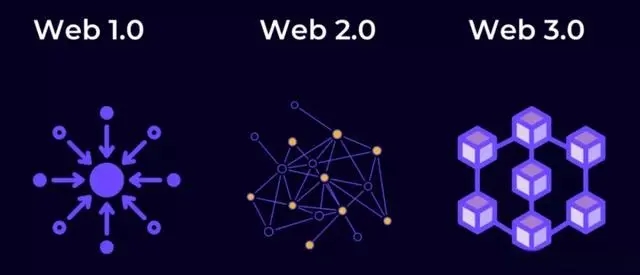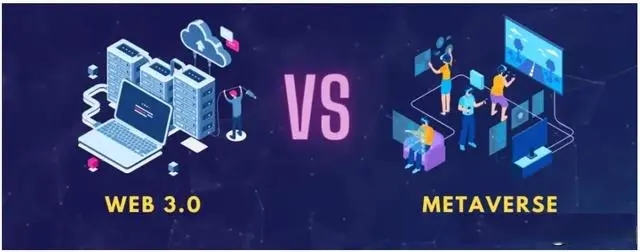Web 3.0 and Metauniverse, which is the next generation of in
Writer: admin Time:2022-11-28 11:41 Browse:℃
Web 3.0 and Metauniverse, which is the next generation of information technology (IT) ?
"Most of the project owners can't explain what Web3 is, so don't make it difficult for each other." Recently, a well-known encryption investor commented on the Web3 project party seeking investment in the circle of friends.
Every wave of scientific and technological innovation can bring many opportunities, and the "next generation Internet" is no exception. But this time, people seem to have trouble waiting for and exploring opportunities. Now the mainstream media, Kol, and even many published books claim that the "next generation Internet" is different. Some say Web3, and some say the meta universe, which is very confusing. Not only ordinary people, we will find that many times even Web3 entrepreneurs cannot fully understand Web3, the meta universe. How can we really master the new "wealth code"?
Perhaps all this starts with the accurate definition of Web3 and the meta universe and the clarification of their relationship
01 Web3, the meta universe is defined by the mainstream consensus
If you want to know whether you can understand, you can teach others. Suppose someone asked you to explain clearly what the Web3 universe is, how would you explain it?
Web3. There are many definitions of the meta universe, and there is certainly no standard answer. But in addition to relevant professionals, pay attention to its mainstream definition. New technologies usually follow the pace of mainstream consensus. Therefore, our definition of Web3 and the meta universe should be as close to the mainstream consensus as possible:
The mainstream definition of a, Web3
First of all, don't worry about Web3 or Web3.0 here. Just a name, whatever you like.
In recent years, the most thought about the research and application of Web3 is in the field of encryption, so we can refer to the definition of Web3 by the Ethereum Foundation. In short, we can trace back to the way people used the Internet to share information:
The information in Web1.0 is for reading only;
Information in Web 2.0 can be read and written;
Information in Web 3.0 can be read, written, and owned. The focus is to take back the ownership of the data from the Internet giant.
Take an example that everyone can understand: there was a real estate developer who built many houses.
1.0, only for others to access;
2.0. You can not only visit, but also live in it for free, but there are conditions in exchange: you must register your personal information first, and authorize the camera in the house to record any moment of your life, including but not limited to bathing and sleeping... These data and pictures should be kept by the developer, who can use and sell them for profit at any time for free;
3.0. Everyone bought the property and became the owner. They took back the ownership of the property from the developer and the right to benefit from indoor and outdoor advertising. A community owner committee was established to jointly manage the property
Internet oligarchs born in the era of Web 2.0 are "developers". Why are they willing to provide free search engines, free mailboxes, free microblogs, free chat and other excellent services for free, just to exchange our private data for advertising analysis and sale for profit. In the future, we will spend very little to ensure that private data and ownership are in our own hands. At the same time, through the DAO, the Internet platform is jointly managed to share profits, and the property right is independent like the establishment of the community industry committee. This is Web 3.0.
In short, Web3.0 is a natural evolution and major upgrade of the ownership of Internet information and data against the background that users are eager to avoid the monopoly control of giants and take back the ownership and governance. Therefore, many people call it the "next generation Internet".
B. Mainstream definition of the meta universe
Metauniverse is not a new term, but we still follow the latest mainstream consensus to define it on the shoulders of our predecessors. Facebook Zuckerberg's "meta", Tencent Ma Huateng's "all truth Internet", the first "Roblox" sandbox MMO game/kloc-1. From these three ideas, we can conclude:
Metauniverse is a form of reconstruction of existing Internet information display and interaction. People make the Internet "what they see is what they get" through AR VR.
It is easy to give more examples of the meta universe. It can be seen from the changes in the Internet social applications we contact daily:
The earliest people used the Internet to communicate in plaintext (BBS, email, early version of QQ).
Later, people's online communication forms became more and more abundant, such as facial expressions, voice chat, video dating, and social games (new versions of QQ and WeChat).
In the meta universe, people can enter the online virtual world to interact with others, play games and hold meetings through VR devices. With the maturity of infrastructure such as software and hardware, people are more and more immersed and can be "immersive".
In short, the meta universe has become a problem about the evolution and major upgrading of Internet applications in experience (vision, operation, etc.) Guided by the growing demand of users for high-quality online application experience, many people call it "the next generation Internet".
02 Is the Next Generation Internet Web3 or Metauniverse?
Web3 and Metauniverse are the next generation Internet, so Web3=Metauniverse? Of course, we can easily find their differences and connections from the previous definitions. Web3 is the evolution and upgrading of data ownership, while the meta universe is the evolution and upgrading of user experience. Both of them belong to the "next generation" from two perspectives. If there is an application that can simultaneously meet the requirements of data ownership and user experience upgrading, it is not impossible, then it is the combination of Web3 and the meta universe.
In addition, the Internet is not the same as the Web. The Web, whether 1.0, 2.0 or 3.0, is just an application layer or a collection of information running on the Internet. The Internet includes the Web. In addition to the Web, it also includes communication facilities, hardware and other infrastructure. As we often refer to the PC Internet, the mobile Internet refers to the network mainly linked with PCs and the network linked with mobile devices (mobile phones, tablets, etc.), The next generation Internet can also be called VR Internet when the time is right. We can access the virtual space through VR devices, namely/kloc-1. So, like Web3 and the meta universe, they are subsets of the Internet.
painting
For example, in the diagram, the next generation Internet includes Web3 and the Metauniverse. Not only that, it actually needs the support of infrastructure and terminals, such as Vr and other visual somatosensory devices, graphics rendering GPU, AI, big data computing devices, etc.
03 Who is the "true love" of Web3 and the meta universe blockchain/encryption?
We have basically clarified the mainstream definitions of Web3 and the meta universe and the relationship between them. Of course, the important link that cannot be ignored here is blockchain or encryption.
Previously, many people expanded the definition of the meta universe to "the next generation Internet", which will make the meta universe an all inclusive concept, even including Web3 and blockchain/encryption. The meta universe can do anything. In fact, the meta universe does not necessarily need Web3 and blockchain. Facebook's Meta, Tencent's "True Internet" and Metauniverse's first Robox are almost irrelevant to Web3 and blockchain. Of course, in the field of encryption, the ideal meta universe must be based on the encryption meta universe. As for which is better, it still needs time to verify.
Web3 may not be a meta universe, but it may be supported by blockchain and encryption. The infrastructure must be a public chain, not a federation chain. Web3 users want to take back the ownership of data, and users can make platform autonomy and distribute benefits fairly. At first glance, it feels a bit "mysterious", which is one of the reasons why Web3 is considered by some people to be an absolutely impossible "scam". However, more than 10 years ago, a social experiment called "the first large-scale collaboration in human history" was born, which successfully proved the inviolability of users' ability to protect private assets and distribute the benefits of the platform independently and fairly without any institutions. That is Bitcoin.
Bitcoin fully conforms to the definition of Web3. Of course, its function is a single peer-to-peer payment system, and its governance rules are relatively simple, but it is precisely this simplicity that makes it particularly "vulnerable" and stronger. At present, behind many decentralized projects such as the Public Chain and DeFi, Ador is the sovereign organization of the project. Any person holding a token can participate in governance in various ways. Of course, Tao itself is still an "experiment of governance". In general, many encryption infrastructures and applications have shown a good start in protecting personal data and managing the sharing economy fairly with the platform.
On the other hand, some people propose authorization to participate in the alliance chain at the expense of something, which seems to only ensure that the platform belongs to those alliance chain nodes. The user has no right to the platform. As long as the node is willing, the user will lose the ownership of the data at any time. Some digital storage platforms that are always closed in China are typical examples, so there is no need to explain too much.
To sum up, we can easily come to the conclusion that currently Web3 only supports blockchain encryption, and the meta universe does not necessarily need blockchain and encryption support, but if the dual benefits of encryption and meta universe can be combined, it is indeed a future form worth pursuing.

